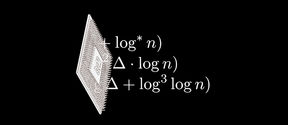The demoscene accepted to the national inventory of living heritage

The demoscene is an international community focused on the creation of demos, creative real-time audiovisual presentations that combine skilfully crafted software, graphics and audio.
In May 2020, the demoscene was added to the national inventory of living heritage by the Ministry of Education and Culture as the first branch of digital culture ever. The inventory currently comprises a total of 64 elements, from musical saw playing to puppetry and bedtime story traditions.
University lecturer Markku Reunanen from Aalto ARTS Department of Media was an active member of the application working group, coordinated by the Finnish Museum of Games. Markku Reunanen wrote the application text as well as found most of the supporters.
The Finnish application is part of a larger project, Art of Coding, which aims at getting the demoscene recognized by Unesco as intangible cultural heritage.
The Finnish scene
The Finnish scene consists of hundreds of individual demogroups, that come together for various events throughout the year. It has close connections to many Finnish game companies, in particular most of the oldest ones. Some of the participants who are still active have started as early as the mid-1980s.
The demoscene largely focuses on demos, but there is a great variety of other digital artifacts created by the community: tiny demos (known as intros), music, visual works, videos, magazines (diskmags) and also games. These artworks are distributed free of charge, originally on floppies and later on through various online services. The works are reviewed, ranked and discussed on various media which, likewise, have evolved from physical to digital and, eventually, Internet forums. Various competitions, where people can showcase their skills in programming, drawing or musical composition are an integral part of the culture. Most often the competitions go hand in hand with parties, scene meetings that can range from informal get-togethers to large events with thousands of visitors. Assembly, the digital culture festival held in Helsinki, started in 1992 as a demo party.
With its more than 30 years of history, the Finnish demoscene is one of the oldest extant branches of digital culture. What started as an exclusive movement of mostly adolescent boys has over time grown to be an increasingly diverse and inclusive community. Parties are organized regularly, new productions are created, and online discussion forums are in active use. The rising, nostalgia-driven popularity of retro computing has brought back inactive past sceners who didn’t participate for years. That said, the current huge variety of digital culture poses challenges to the demoscene as well: how to get noticed and lure new members in?
Read more here.
For more information:
Markku Reunanen, University lecturer from the Department of Media
[email protected]
- Published:
- Updated:
Read more news

Nordic researchers develop predictive model for cross-border COVID spread
The uniquely multinational and cross-disciplinary research was made possible by transparent data-sharing between Nordic countries.
Professor appointments at the School of Business
Prottoy Akbar, Pablo Warnes, Erkki Vihriälä and Christoph Huber will start in their new positions on 1 August 2024.